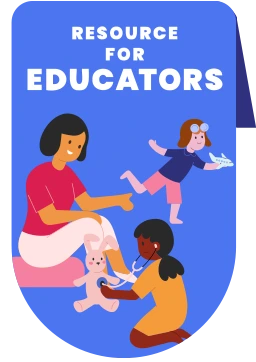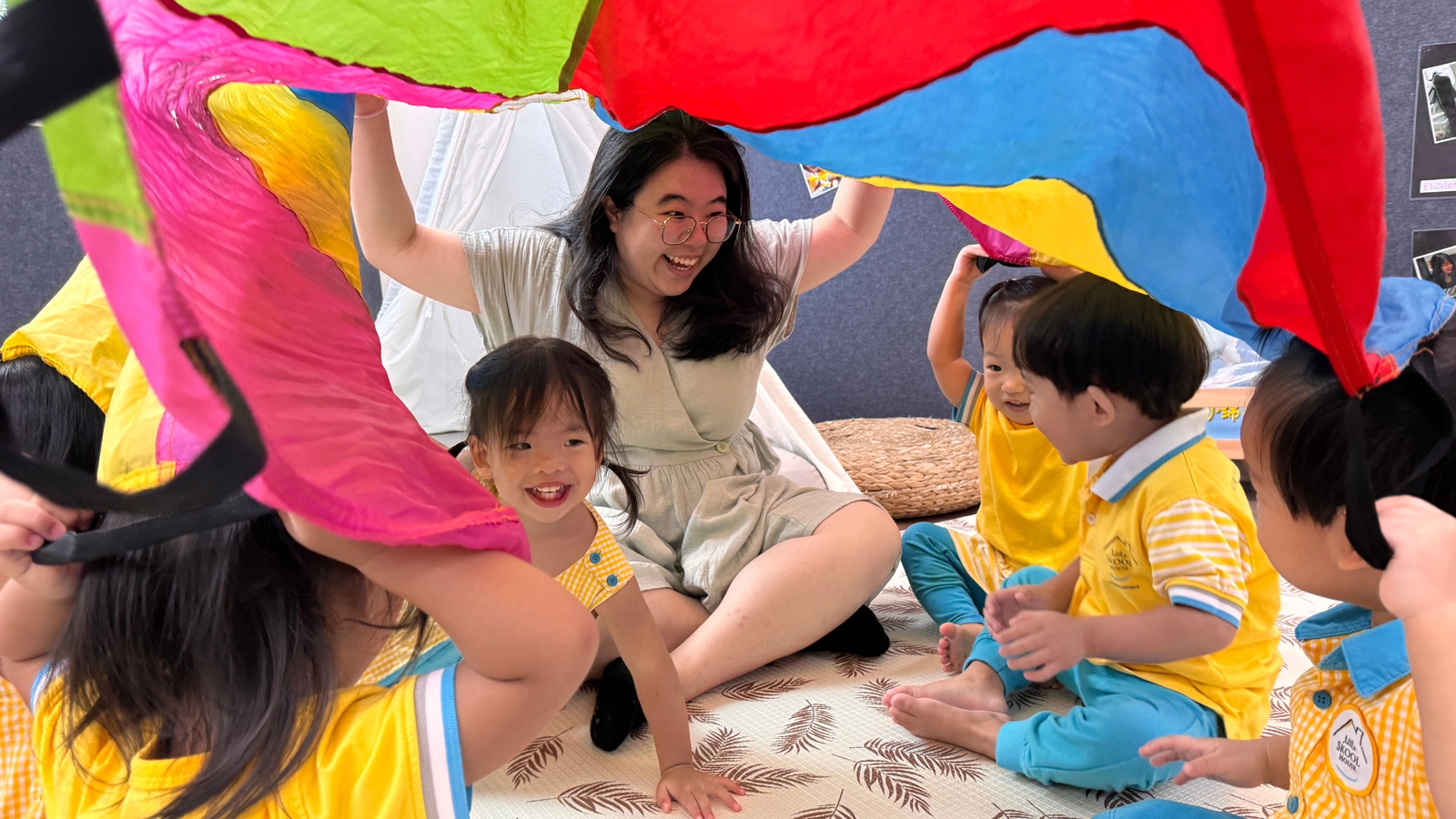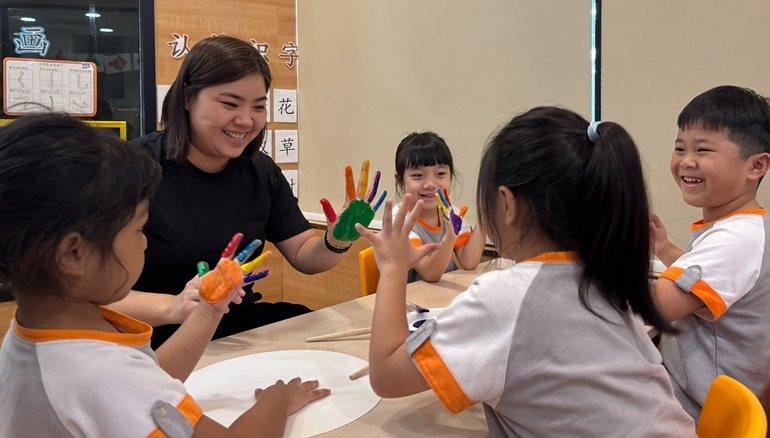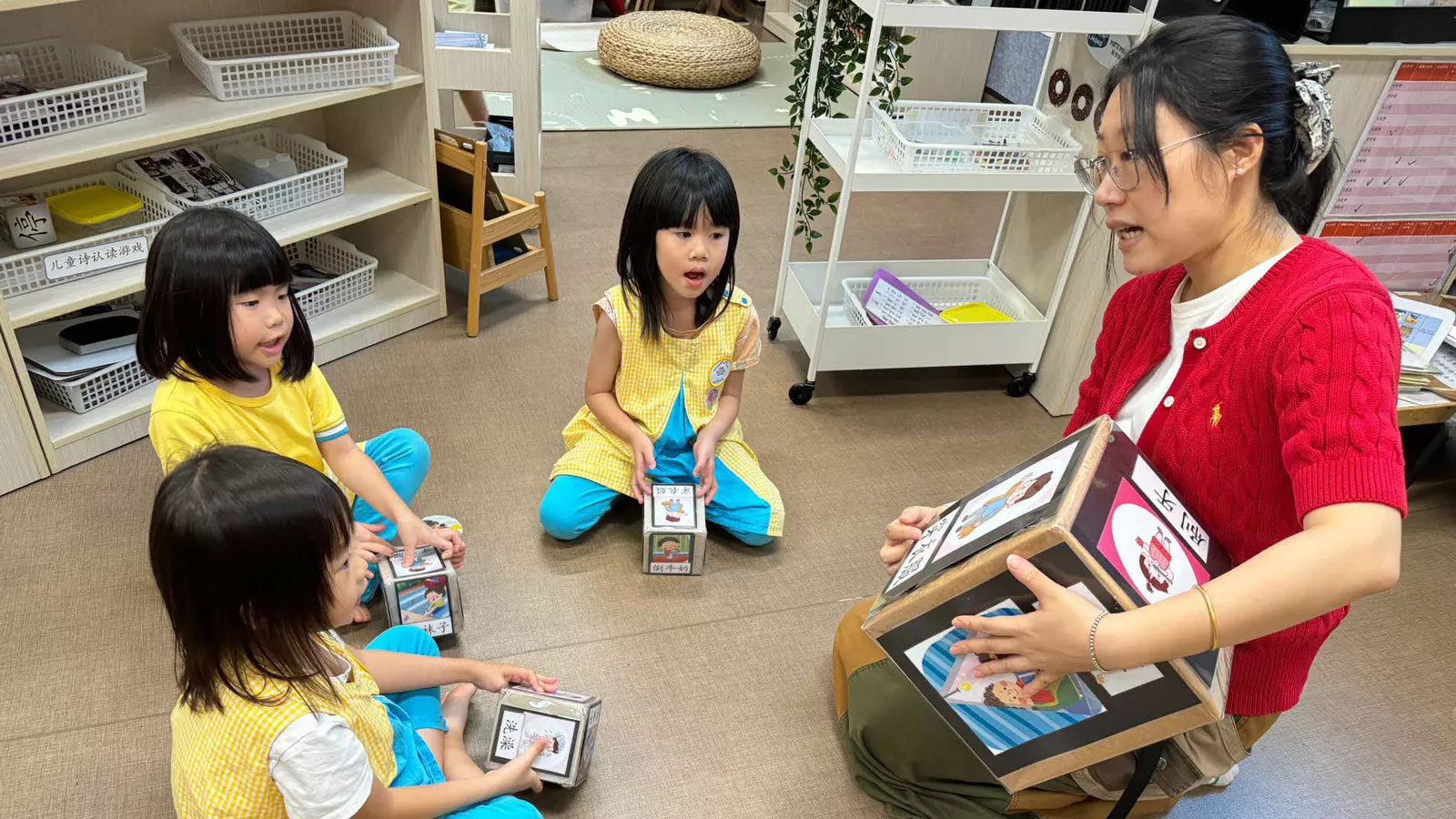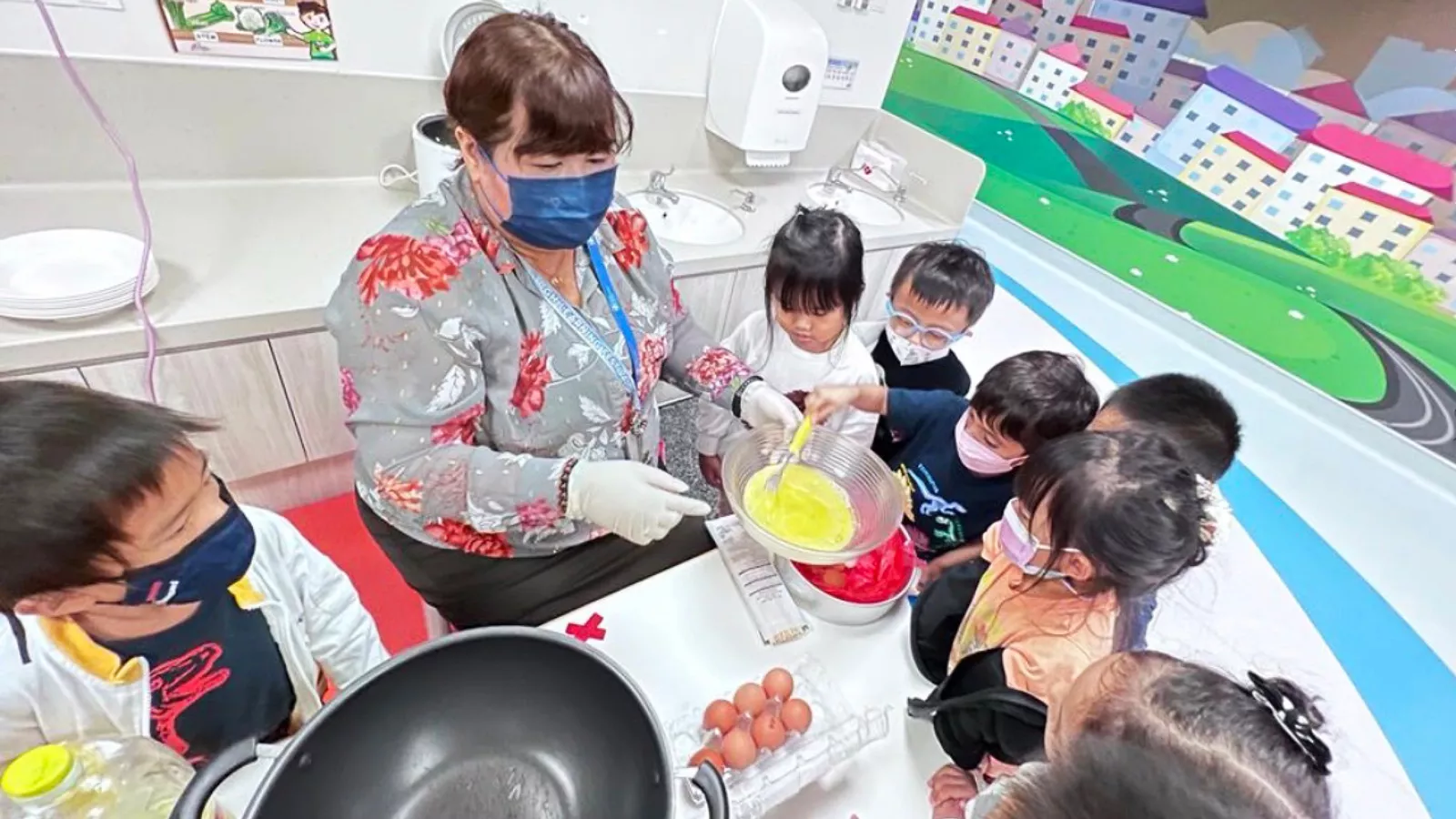Each day in preschool brings new adventures for Ms Crystal Tan, 26, Senior Teacher at Little Skool-House (Ulu Pandan Community Club). She finds moments of joy and inspiration even in routine caregiving tasks and guiding children in her nursery class through important developmental milestones, such as potty training.
Ms Tan has just achieved a major milestone herself: Finishing her master’s in special education at the National Institute of Education. In April 2025, the recipient of ECDA’s 2024 Outstanding Early Years Educator Award completed her degree programme. She looks forward to using her newfound knowledge and skills to better support children with diverse needs.
EARLY YEARS EDUCATORS WORK WITH CHILDREN AGED 18 MONTHS TO FOUR YEARS. WHAT DO YOU LOVE MOST ABOUT TEACHING THIS AGE GROUP?
Crystal: Children at this age are vibrant and lively. Watching them grow and pick up new skills, such as feeding themselves and getting dressed, is rewarding. It’s amazing and motivating to be a part of their development and celebrate their milestones.
HOW DO YOU INSTIL SELF-HELP SKILLS AND RESILIENCE IN THEM?
Crystal: I believe in respecting children as capable individuals. Even though they are young, they can do a lot on their own. They just need someone to guide and encourage them. I want to motivate them to explore their abilities and feel confident about doing things by themselves.
 Fun aside, bubble play helps children develop hand-eye coordination and motor control, honing skills crucial for tasks like eating and dressing.
Fun aside, bubble play helps children develop hand-eye coordination and motor control, honing skills crucial for tasks like eating and dressing.
WHERE DID YOUR INTEREST IN INCLUSIVE EDUCATION COME FROM?
Crystal: It started from my experiences with children in my class who had varying needs and abilities. Some showed signs of autism spectrum disorder or attention deficit hyperactivity disorder, such as difficulty concentrating on a task, following instructions or regulating emotions. I found myself curious about the reasons behind these behaviours, which led me to pursue a master’s degree in special education.
CAN YOU SHARE SOME STRATEGIES TO CREATE AN INCLUSIVE LEARNING ENVIRONMENT?
Crystal: Through the course, I gained a clearer understanding of the Early Intervention Programme for Infants and Children (EIPIC). It’s important for preschool educators to communicate with early intervention (EI) professionals, so we are aligned on the child’s progress and learning goals. When a child in my care is referred to EIPIC, I initiate conversations with their EIPIC teachers, who share intervention strategies that I can apply in my classroom.
Once, I asked an EIPIC teacher how she managed a boy who constantly ran around during lessons. She advised me to look him in the eye, firmly tell him to “stop”, and count together with him until he calmed down. If I hadn’t asked her, I wouldn’t have known that running was his way of self-stimulation, or the appropriate way to respond to his behaviour.
 If a child is struggling with self-regulation, Ms Tan recommends dough play activities as kneading and manipulating the dough can help them calm down.
If a child is struggling with self-regulation, Ms Tan recommends dough play activities as kneading and manipulating the dough can help them calm down.
WHAT ARE YOUR HOPES AND ASPIRATIONS FOR THE FUTURE OF EARLY CHILDHOOD EDUCATION?
Crystal: Besides upskilling through continuing professional development, educators should embrace a collaborative and open-minded approach. We need to recognise that allied educators and therapists play an integral role in preschools, and work with them to provide holistic support that meets the diverse needs of all children.
In 2024, I took on another role as my preschool’s inclusive officer. I help colleagues identify children who may require tailored teaching strategies or additional support. I also guide educators and parents to appropriate EI resources and services, such as EIPIC. In this capacity, I hope to strengthen communication among all stakeholders in the EI ecosystem to ensure support for every child.

